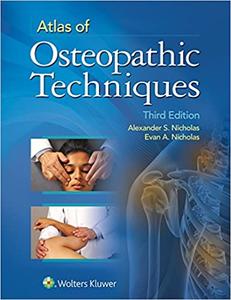
Alexander S. Nicholas DO FAAO, Evan A. Nicholas DO, "Atlas of Osteopathic Techniques"
English | 2015 | pages: 632 | ISBN: 1451193416 | PDF | 189,9 mb
This one-of-a-kind reference is ideal for exam preparation and clinical rotations, as well as an excellent refresher for day-to-day clinical practice. Get step-by-step, full-color guidance on manipulative methods commonly taught and used in osteopathic medical education and practice. More than 1,000 vibrant photos and illustrations highlight concise, readable text-all on the same or adjacent page for quick and easy reference. The third edition includes extensive additions to the chapter on cranial techniques, as well as significantly revised overviews of high-velocity, low-amplitude techniques, muscle energy techniques, and counterstrain techniques.
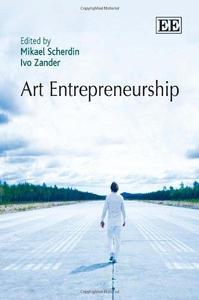
Art Entrepreneurship By Mikael Scherdin, Ivo Zander, Mikael Scherdin, Ivo Zander
2011 | 240 Pages | ISBN: 1848443692 | PDF | 4 MB
This pioneering book explores the connections between art and artistic processes and entrepreneurship. The authors expertly identify several areas and issues where research on art and artistic processes can inform and develop the traditional field of entrepreneurship research. Nine original chapters by an international group of scholars take a detailed look at the sources of new art ideas, how they are transformed into tangible objects of art, make their way through often hostile selection environments, and ultimately go on to become valued and accepted by the general public. Making a number of original contributions at the crossroads of art and entrepreneurship, the book speaks to researchers across these fields, practicing artists interested in promoting and gaining acceptance for their work, as well as policymakers concerned with sustained dynamics of the art arena. Entrepreneurship researchers interested in new developments in the field will find this unique book invigorating. It also serves as an invaluable source of inspiration for academics and practitioners interested in social and cultural entrepreneurship.Contributors: D. Barry, M. Bonnafous-Boucher, R. Cuir, P. Frankelius, S. Haefliger, K. Lindqvist, S. Meisiek, M. Partouche, M. Scherdin, M. Søndergaard, I. Zander
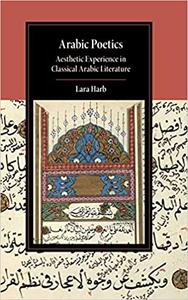
Lara Harb, "Arabic Poetics: Aesthetic Experience in Classical Arabic Literature "
English | ISBN: 1108490212 | 2020 | 318 pages | PDF | 3 MB
What makes language beautiful? Arabic Poetics offers an answer to what this pertinent question looked like at the height of the Islamic civilization. In this novel argument, Lara Harb suggests that literary quality depended on the ability of linguistic expression to produce an experience of discovery and wonder in the listener. Analyzing theories of how rhetorical figures, simile, metaphor, and sentence construction are able to achieve this effect of wonder, Harb shows how this aesthetic theory, first articulated at the turn of the eleventh century CE, represented a major paradigm shift from earlier Arabic criticism which based its judgement on criteria of truthfulness and naturalness. In doing so, this study poses a major challenge to the misconception in modern scholarship that Arabic criticism was 'traditionalist' or 'static', exposing an elegant widespread conceptual framework of literary beauty in the post-eleventh-century Islamicate world which is central to poetic criticism, the interpretation of Aristotle's Poetics in Arabic philosophy and the rationale underlying discussions about the inimitability of the Quran.
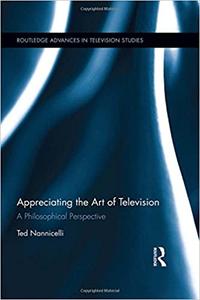
Ted Nannicelli, "Appreciating the Art of Television: A Philosophical Perspective "
English | ISBN: 1138840785 | 2016 | 242 pages | PDF | 1438 KB
Contemporary television has been marked by such exceptional programming that it is now common to hear claims that TV has finally become an art. In Appreciating the Art of Television, Nannicelli contends that televisual art is not a recent development, but has in fact existed for a long time. Yet despite the flourishing of two relevant academic subfields―the philosophy of film and television aesthetics―there is little scholarship on television, in general, as an art form. This book aims to provide scholars active in television aesthetics with a critical overview of the relevant philosophical literature, while also giving philosophers of film a particular account of the art of television that will hopefully spur further interest and debate. It offers the first sustained theoretical examination of what is involved in appreciating television as an art and how this bears on the practical business of television scholars, critics, students, and fans―namely the comprehension, interpretation, and evaluation of specific televisual artworks.
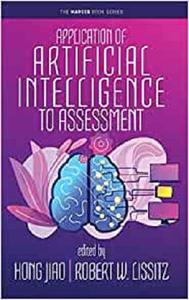
Application of Artificial Intelligence to Assessment (HC) (Marces Book) by Information Age Publishing
English | March 18, 2020 | ISBN: 1641139528 | 218 pages | PDF | 5.01 Mb
The general theme of this book is to present the applications of artificial intelligence (AI) in test development. In particular, this book includes research and successful examples of using AI technology in automated item generation, automated test assembly, automated scoring, and computerized adaptive testing. By utilizing artificial intelligence, the efficiency of item development, test form construction, test delivery, and scoring could be dramatically increased.
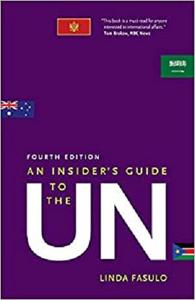
An Insider's Guide to the UN by Yale University Press
English | March 30, 2021 | ISBN: 0300241259 | 239 pages | PDF | 7.15 Mb
Thoroughly revised and updated, a new edition of the most popular guide to the United Nations for students and interested readers
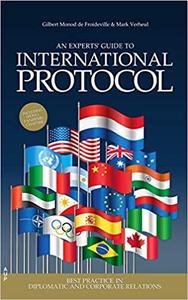
An Experts' Guide to International Protocol: Best Practice in Diplomatic and Corporate Relations
English | 2021 | ISBN: 9463727167 | 352 Pages | PDF | 25 MB
Although modern life grows increasingly casual, in many sectors, protocol still reigns supreme. An Expert's Guide to International Protocol offers an overview of its associated practices, including those found within the context of diplomatic relations and the business world. Focusing on a wide range of countries and cultures, the book covers topics like precedence, seating arrangements, flags, ceremonies, invitations, dress codes, gifts and honours, and the roles of the protocol officer, guest and host. Throughout, influential diplomatic, business, and cultural figures share their own experiences with protocols around the world, also throughout the COVID-19 pandemic.
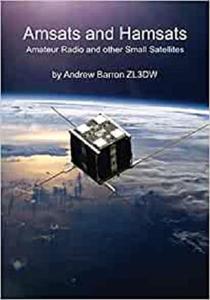
Amsats and Hamsats: Amateur Radio and other Small Satellites by Andrew D Barron
English | March 4, 2018 | ISBN: 1986039749 | 368 pages | EPUB | 5.93 Mb
Amsats and Hamsats provides a comprehensive guide to how you can communicate through amateur radio satellites and how to receive signals from other small satellites and 'weather' satellites.
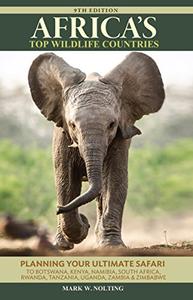
Mark W. Nolting, Duncan Butchart, "Africa's Top Wildlife Countries: Safari Planning Guide to Botswana, Kenya, Namibia, South Africa, Rwanda, Tanzania, Uganda, Zambia and Zimbabwe"
English | 2017 | pages: 544 | ISBN: 0939895242 | EPUB | 159,6 mb
Africa's Top Wildlife Countries highlights and compares wildlife reserves and other major attractions in the continent's best countries for game viewing - making the planning of the journey of a lifetime easy! African countries, and the wildlife reserves within them, vary greatly as to the types and quality of safari experiences they offer. This is the only guidebook that effectively assists readers in choosing the best destinations for the kind of wildlife experience they would most enjoy by comparing travel options among all the top wildlife countries.
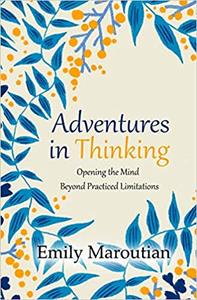
Emily Maroutian, "Adventures in Thinking: Opening the Mind Beyond Practiced Limitations"
English | ISBN: 1537423282 | 2017 | 210 pages | EPUB | 272 KB
Adventures in Thinking follows Emily Maroutian's previous philosophical books, A Second Opinion and The Process of I. In the same vein, it delves into the process of the human mind and how we create, contribute, and ultimately change our experiences and the world around us through the power of our thinking. The first part of the book explores the personal mind and how it becomes limited through conditioned thinking and unconscious patterns of behavior. Our repeated thoughts lead to repeated behavior, which result in repeated experiences. The personal mind creates individual and global conflicts through its unrelenting need for mental security. It bypasses the truth for comfort, denying the possibility for solutions by denying its involvement in the creation of problems. This mind-frame narrows our experiences only to the familiar and safe, which significantly limits our possibilities in life. The second part of the book proposes the notion that we benefit the most from diversity, curiosity, mindfulness, and keeping an open mind. By sharing our unique perspectives with others and allowing others to contribute to our mental growth, we are then open to solutions we haven't considered. An open and aware mind leads to a deeper connection, an adventurous life, and to solution-oriented thinking. We cannot enact real change until we first change our minds.


